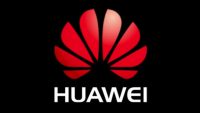According to sources, the U.S. Department of Commerce — which blacklisted China’s Huawei Technologies last year — is in the process of inking a new deal that will allow U.S. companies to work with it to set 5G standards. With last year’s blacklist, companies were at a loss to know what information and technology their employees could share with Huawei, and U.S. engineers stayed mum in international 5G standards-setting meetings. The result was that Huawei gained the upper hand in the discussions.
Reuters reports that the Commerce Department’s blacklist of Huawei “restricted sales of U.S. goods and technology to the company and raised questions about how U.S. firms could participate in organizations that establish industry standards.” The new rule, which is still under review at the department, “essentially allows U.S. companies to participate in standards bodies where Huawei is also a member.”

Should the Commerce Department sign off on the rule, it will go to other agencies for approval, and “it is unclear how long the full process will take or if another agency will object.”
At the Information Technology Industry Council (ITI), which represents Big Tech companies such as Amazon, Qualcomm and Intel, senior director of policy for Asia Naomi Wilson noted that, “it is very much past time that this be addressed and clarified … [since] the existing policies have inadvertently caused U.S. companies to lose their seat at the table to Huawei and others on the entity list.”
Sources said that the new rule “is only expected to address Huawei … not other listed entities like Chinese video surveillance firm Hikvision.” In adding Huawei to the blacklist last May, the Commerce Department noted that the company faced pending U.S. charges “for alleged violations of U.S. sanctions against Iran” and “deceptive and obstructive acts” to evade U.S. law.
Last month, “six U.S. senators, including China hawks Marco Rubio, James Inhofe and Tom Cotton … sent a letter to the U.S. secretaries of Commerce, State, Defense and Energy about the urgent need to issue regulations confirming that U.S. participation in 5G standards-setting is not restricted by the entity listing.”
“We are deeply concerned about the risks to the U.S. global leadership position in 5G wireless technology as a result of this reduced participation,” they said.
According to Wilson, “the uncertainty has led U.S.-based standards bodies to consider moving abroad, noting that the nonprofit RISC-V Foundation … decided to move from Delaware to Switzerland a few months ago.” “International standard setting is important to the development of 5G,” said a senior government administration official, who did not want to be identified. “The discussions are about balancing that consideration with America’s national security needs.”

No Comments Yet
You can be the first to comment!
Sorry, comments for this entry are closed at this time.